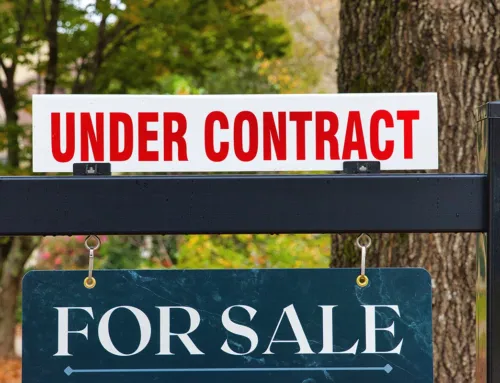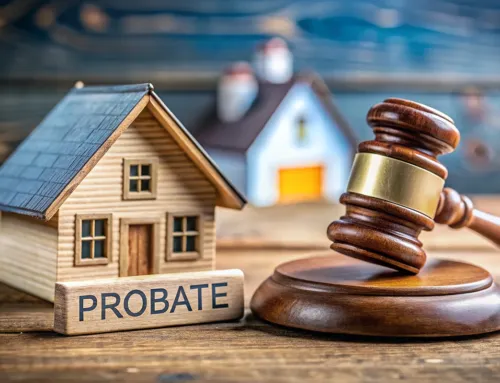You didn't plan for this.
One day, everything was normal. The next, you're navigating loss, legal documents, and a house you didn't ask for. Maybe it's your childhood home. Maybe it belonged to a relative you weren't especially close with. Either way, there's a property in your name now, and with it comes a whole lot of decisions.
Do you keep it? Rent it out? Sell it? Fix it up? What about all the furniture and personal belongings still inside?
And the real question: Do you have the capacity (emotionally, mentally, or logistically) to handle this right now?
Selling an inherited property is not just a financial decision; it's a personal one. Some people are ready to list the home and wait for the highest offer. Others need a quick, clean exit so they can focus on healing, family, or just moving forward. Neither path is "wrong." It's about what works for you.
Pros of Selling an Inherited Property on the Open Market
If you have the time, energy, and support, listing the property traditionally might make sense:
- Potential for Top Dollar: Especially in a strong market, you may get a higher sale price by going retail.
- Access to More Buyers: Listing on the MLS opens the door to owner-occupants, not just investors.
- More Control Over the Sale Process: You can make repairs, stage the home, and set your price.
- Emotional Closure: For some, preparing and selling the home the "right" way feels like honoring the past.
Cons of Selling on the Open Market
That said, this route can be overwhelming, particularly if you're juggling grief, work, or other family obligations:
- Time-Consuming: Cleaning, decluttering, and possibly renovating can take months just to get to the listing stage.
- Emotional Toll: Sorting through someone's belongings can be unexpectedly heavy.
- Coordination with Other Heirs: If multiple people are involved, decision-making can be slower and more complicated.
- Ongoing Costs: Until it sells, you're responsible for utilities, taxes, insurance, and possibly a mortgage.
Pros of Selling to a Cash Buyer
For many heirs, especially those out-of-town or emotionally drained, a direct sale just makes sense:
- Quick Closing: Sometimes in as little as 7–14 days.
- No Repairs or Cleanup Needed: Many buyers will take it as-is, even with belongings still inside.
- No Showings or Open Houses: Avoid having strangers walk through a home that may still feel personal.
- Simplified Process: One decision. One buyer. One set of paperwork.
Cons of Selling to a Cash Buyer
As with any simplified process, there are trade-offs:
- Lower Sale Price: Investors typically pay below market value to account for risk and repairs.
- Less Market Exposure: You won't get multiple offers or emotional buyers willing to overpay.
- Can Feel Rushed: When everything happens quickly, it's important to work with someone trustworthy and transparent.
So… What's the Right Move for You?
Here's the truth: choosing how to sell your inherited property has less to do with the house, and more to do with you.
Ask yourself:
- Did you inherit all the belongings? Are you ready to go through them?
- Are other heirs being helpful, or are things tense?
- How's your own schedule right now? What season of life are you in?
- Do you have the emotional energy and physical bandwidth to clean, prep, list, and show the home?
- Do you live nearby or would this turn into an out-of-state project?
If the idea of listing the home feels empowering, go for it. If it feels like a mountain you're not ready to climb, you are absolutely allowed to sell quickly and move on. Either way, there are professionals who can help.
What About Probate and Taxes? (And What Most People Get Wrong)
For many people inheriting a home, the word probate sends a shiver down the spine. It sounds like a complicated legal process, and it can be. But let's clear up a few common myths and give you the basics you actually need to know.
Myth #1: You Can't Sell the House Until Probate is Fully Closed
Truth: In most cases, the home can be sold while the estate is in probate, as long as the executor has been officially appointed by the probate court. This means you don't necessarily have to wait months (or longer) for the process to wrap up.
Myth #2: Probate Automatically Triggers Huge Taxes
Truth: Most inherited homes do not come with a major tax bill. Thanks to something called the step-up in basis, you likely won't owe capital gains taxes unless the property sells for more than it was worth on the date of death. Always check with a CPA, but the tax burden is usually far lower than people fear.
Myth #3: Probate Means Family Drama
Truth: Not always! If the will is clear and the executor communicates well, probate can be a smooth (if slow) process. That said, if there's no will, or multiple heirs with conflicting opinions, it can get messy—so having a neutral third party (like a probate attorney or experienced real estate agent) can help keep things civil and organized.
Here's a Quick Breakdown of the Typical Probate Steps:
- File the will and open probate with the court
- Appoint an executor (or administrator, if no will)
- Inventory the estate, including the property
- Decide whether to sell on the market or to a cash buyer
- Handle debts, then distribute proceeds to heirs
Need Help Navigating the Sale of an Inherited Property?
We've helped families in all kinds of situations, from full cleanouts to simple transactions across Cleveland and the surrounding suburbs. Whether you're ready to list or want a no-pressure cash offer, we'll walk you through your options and help you choose what works best for you and your situation.





